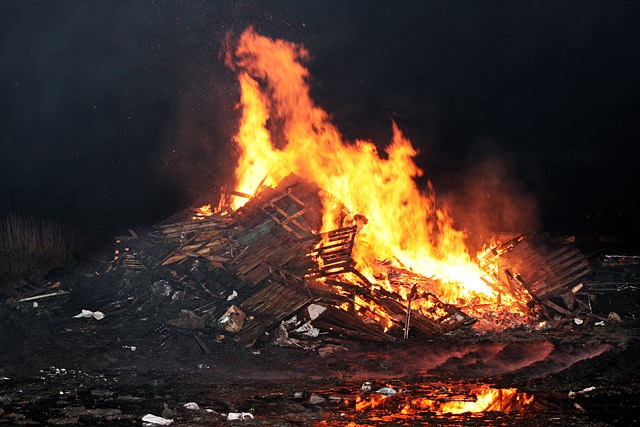Ambulance service encourages safety on Bonfire Night
Date published: 03 November 2013

Ambulance service encourages safety on Bonfire Night
Ambulance Service issues safety message after receiving 8% increase in 999 calls over Bonfire weekend last year.
In the run up to Bonfire Night, North West Ambulance Service NHS Trust (NWAS) is reminding people to stay safe and keep themselves and others free from harm at private and community bonfire displays.
Last year, the ambulance service saw an 8% increase in calls to bonfire-related incidents – 700 additional emergency calls throughout the region. The range of incidents included two teenagers in Greater Manchester who suffered facial burns and facial lacerations after a wheelie bin had had been set alight and exploded. Common injuries include burns to hands from sparklers, fireworks or bonfires.
Derek Cartwright, Director of Operations at NWAS, said: “Around the Bonfire Night period, our ambulance crews will treat a number of patients, children and adults, ranging from those with minor burns to those with more serious, life-threatening injuries.
“It is easy to forget how dangerous fireworks, bonfires and even sparklers can be. Sparklers get five times hotter than cooking oil and a rocket can reach speeds of 150mph.
“Throughout the celebrations please remember to keep a watchful eye on your children and to keep them out of harm’s way and if you are handling or lighting fireworks yourself remember to follow all the safety rules.
“Fireworks used properly are safe and accidents are avoidable. However, they can cause devastating injuries or even death if safety precautions are not followed.
“We recommend that people go along to a professionally-organised public display. But, if you are planning to host your own event, we urge you to exercise caution and make safety a priority to ensure everyone has a good time without getting hurt.”
In the event of an accident with fireworks or fires you should:
- Extinguish any flames if the casualty is alight;
- Use cold water (ideally cold running water) to cool the burnt area and reduce pain;
- Not remove burnt clothing which has stuck to the skin;
- Not use any creams, oils etc;
- Seek urgent medical help, calling 999 if injuries are serious or, for minor injuries, contact NHS 111.
For more information on firework safety, visit The Royal Society for the Prevention of Accidents (RoSPA) Safer Fireworks website: www.saferfireworks.com or visit the NHS Choices website at: http://www.nhs.uk/livewell/fireworksafety/Pages/Fireworksafety.aspx
Do you have a story for us?
Let us know by emailing news@rochdaleonline.co.uk
All contact will be treated in confidence.
Most Viewed News Stories
- 1Art exhibitions to celebrate the UN International Year of Co-operation
- 2Schools in Rochdale borough to become vape free settings
- 3Final phase of Rochdale Town Hall redevelopment tabled
- 4Historic England ‘disappointed’ by the spat over Hopwood Hall
- 5Staff and students celebrate successes at Rochdale Training Learner Awards
To contact the Rochdale Online news desk, email news@rochdaleonline.co.uk or visit our news submission page.
To get the latest news on your desktop or mobile, follow Rochdale Online on Twitter and Facebook.

